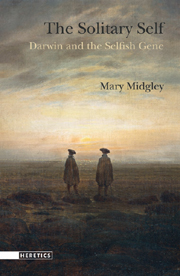Book contents
5 - Darwin's new broom
Summary
Which reductions do we need?
We have now looked at what Darwin actually wrote about human sociality. We have seen how far his thinking is from what his supposed disciples offer. And we have noticed how his remarks have upset people in two opposite quarters: both his self-styled followers, who think he is not reductive enough, and the various kinds of traditionalists – humanists as well as Christians – who think he is too reductive. The source of both troubles lies in his original ideas about human psychology, which differ from both these widespread positions.
One very important thing that his conception of human motivation shares with the Christian view is a realistic acceptance that conflict is central to human life: that we must always be facing new dilemmas without having ready-made answers. Where he differs from the Christian angle is in locating those conflicts within human nature itself – between our various naturally conflicting motives – rather than between our nature as a whole and spiritual forces for good that lie outside it. He does not see the source of evil as lying in our “animal nature” as such, while everything good comes from outside it. Instead, he sees evil as arising from the mistaken choices that we – as whole persons – make between the various elements that compose our nature. It is, as the Buddhists say, a matter of unskilful means.
- Type
- Chapter
- Information
- The Solitary SelfDarwin and the Selfish Gene, pp. 97 - 116Publisher: Acumen PublishingPrint publication year: 2010

